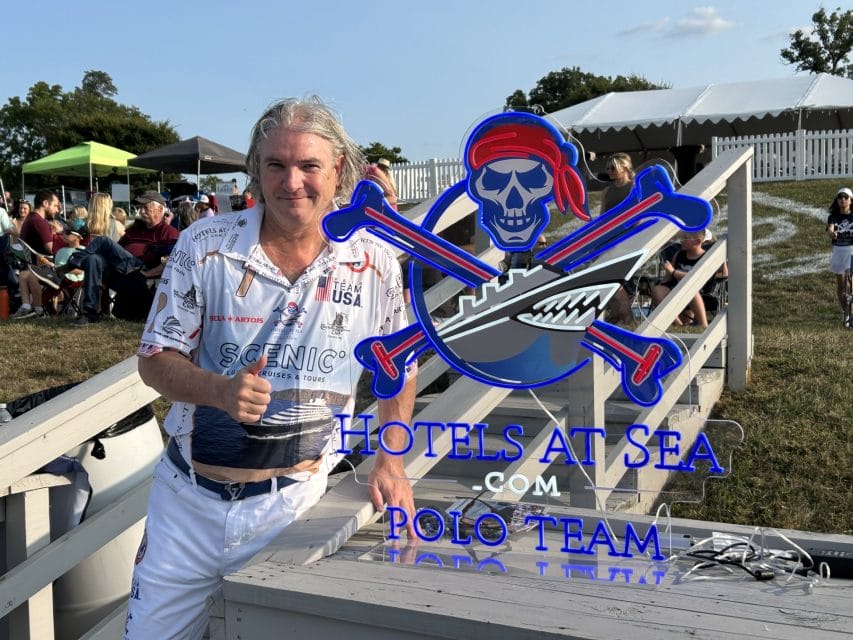Tareq Salahi is an entrepreneur, travel and tourism expert, known for his diverse ventures, including being the IPT Captain of the USA Polo Team, a winery owner, and a television personality ranked among the top 5% of social media influencers worldwide. Tareq serves as the chairman of Hotels at Sea & Resorts at Sea, providing consulting services to cruise lines and specializing in cruise line event productions, marketing, and public relations.
What qualifications are required to work on the cruise industry?
Tareq Salahi: Recruiters aim to find candidates who have the right technical skills for the role and also share a real passion for creating a great guest experience aboard ship. Every job onboard directly contributes to generating a superior guest experience.
Generally, preference is given to the people who consider this work as an excellent opportunity to travel and meet new people rather than just a way to earn a paycheck.
Cruise lines practice active recruitment throughout the world, valuing the different diversities of nationalities and skills for a better onboard culture and more enriched passenger experiences.
Are there any opportunities for career progression within the cruise industry?
Tareq Salahi: There are plenty. Many enter from entry-level positions with promotions possible into corporate or leadership roles in a few years. Most cruise lines place more importance on hiring candidates who bring a positive attitude to the role, rather than their experience working on cruises. They offer to provide the latter with ample on-the-job training, so that these newcomers can also make a success of working onboard.
What’s the educational background needed to enter the cruise industry? Is there something like a “college for cruises” or specific degree?
Tareq Salahi: There isn’t really a school specifically for the cruise industry, which actually makes it quite fascinating. Our staff comprises employees with PhD and ones who have never had the experience of sitting in a classroom. Of course, there are some positions for which qualifications are necessary, particularly those relating to technical or scientific knowledge for teaching the guests or concentrating on environmental studies.
But ultimately, being a “people person” is the key qualification for anyone in this industry. If you have the passion and personality for it, there’s a place for you, regardless of your degree.
What is the current state of the cruise industry amid recent challenges in hospitality?
Tareq Salahi: It’s changing in some really exciting ways. Since the pandemic, cruise lines and travel spots have surprised everyone with innovation and resilience. For example, companies are creating ships specifically for one area of the world, such as the Galapagos Islands, where new ships like the Celebrity Flora and Silver Origin are being born.
More and more of the wealthier population are looking for adventure. This is the “discovery yachts” market that is currently booming and is capable of sailing in waters jammed with ice, opening access to the world’s untouched corners— a classic new product that plays perfectly to humanity’s innate drive to explore. It is in our DNA.
It’s really an exciting time, with limitless opportunities for exploring our world from the ocean.
What do you think, will the cruise industry eventually be taken over by large corporations, or is there room for smaller operators?
Tareq Salahi: Perhaps one of the most noteworthy things about the cruise industry is that it’s not a playground for giants—it’s extremely welcoming to smaller players as well. And that’s where you can find big international brands like LVMH coexisting with local artisans and small businesses aboard the ships. For example, everything on the Galapagos ship comes from Ecuador— furniture, tableware, and all.
Perhaps indicative of another trend, some leading hotel brands are moving into cruising with upscale, small luxury yachts to provide high-touch experiences for their customers. Those boats will most often be in places where they already have hotels so it’s a pretty convenient combination of high-quality experience on land with an experience at sea. From major corporations to established hotel brands and local artisans, a diverse set of options exist for the discerning traveler.
Why are unique travel experiences still in demand despite a trend toward reduced spending on fine dining and luxury?
Tareq Salahi: Yes, the spending pattern has changed, but it does not mean people are cutting down on traveling, it means they are now traveling to places that have some meaning and are tailored to their individual needs. While there has been a decline in traditional fine dining on land, cruise lines seem to be adapting—replacing old luxury ideas with a more contemporary version of great service.
Some cruises no longer have the formal tuxedo-and-gown nights but instead have “Glam Night” or “Chic Night”, where passengers can dress elegantly but informally.
There’s a stereotype that cruising is mostly popular with older generations. But is that true?
Tareq Salahi: Very false assumption and perception. The new age of cruising is designed for everybody. Whatever the Gen Z, or the family, or maybe the seniors, today’s cruising world caters to all kinds of travel enthusiasts. The modern ship has many different activities and experiences to offer; it goes far beyond the old image of cruise ships as just another “retirement pastime.” People are there that have a common interest-travel and exploration.
Where, in your opinion, is the cruise industry likely to be heading within the next few years?
Tareq Salahi: The future of boating is all about expansion and ingenuity. Adventure ships, discovery yachts, and unique boats for special areas on the planet represent just a beginning. As we invent vessels for different ports and push the frontiers of discovery, the cruise industry will continue to change to satisfy man’s instinctive drive to see new territories. Coupled with the health perks of being close to the ocean plus the very intense personal bonds that are forged during these trips, it’s good news for this industry— we have a lot to look forward to.




